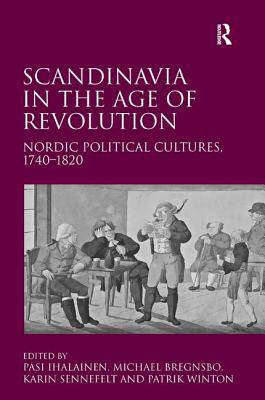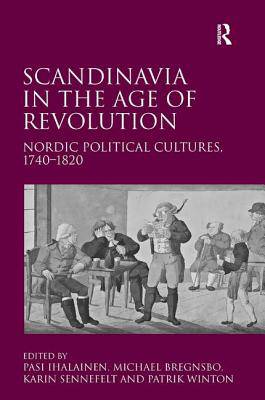
- Afhalen na 1 uur in een winkel met voorraad
- Gratis thuislevering in België vanaf € 30
- Ruim aanbod met 7 miljoen producten
- Afhalen na 1 uur in een winkel met voorraad
- Gratis thuislevering in België vanaf € 30
- Ruim aanbod met 7 miljoen producten
Zoeken
Scandinavia in the Age of Revolution
Nordic Political Cultures, 1740�1820
Michael Bregnsbo, Patrik Winton
Hardcover | Engels
€ 195,95
+ 391 punten
Omschrijving
The 'Age of Revolution' is a term seldom used in Scandinavian historiography, despite the fact that Scandinavia was far from untouched by the late eighteenth-century revolutions in Europe and America. Scandinavia did experience its outbursts of radical thought, its assassinations and radical reforms, but these occurred within reasonably stable political structures, practices and ways of thinking. As recent research on the political cultures of the Nordic countries clearly demonstrates, the Danish, Finnish, Icelandic, Norwegian and Swedish experiences of the late-eighteenth and early-nineteenth centuries offer a more differentiated look at what constitutes 'revolutionary' change in this period compared with other regions in Europe. They provide an alternative story of an incipient transition towards modernity, a 'Nordic model' in which radical change takes place within an apparent continuity of the established order. The long-term products of the processes of change that began in the Age of Revolution were some of the most progressive and stable political systems in the modern world. At the same time, the Scandinavian countries provide a number of instances which are directly relevant to comparisons particularly within the northwest European cultural area. Presenting the latest research on political culture in Scandinavia, this volume with twenty-seven contributions focuses on four key aspects: the crisis of monarchy; the transformation in political debate; the emerging influence of commercial interest in politics; and the shifting boundaries of political participation. Each section is preceded by an introduction that draws out the main themes of the chapters and how they contribute to the broader themes of the volume and to overall European history. Generously illustrated throughout, this book will introduce non-Scandinavian readers to developments in the Nordic countries during the late-eighteenth and early-nineteenth centuries and both complement and challenge research into the political cultures of Europe and America.
Specificaties
Betrokkenen
- Auteur(s):
- Uitgeverij:
Inhoud
- Aantal bladzijden:
- 408
- Taal:
- Engels
Eigenschappen
- Productcode (EAN):
- 9781409400196
- Verschijningsdatum:
- 23/09/2011
- Uitvoering:
- Hardcover
- Formaat:
- Genaaid
- Afmetingen:
- 156 mm x 233 mm
- Gewicht:
- 996 g

Alleen bij Standaard Boekhandel
+ 391 punten op je klantenkaart van Standaard Boekhandel
Beoordelingen
We publiceren alleen reviews die voldoen aan de voorwaarden voor reviews. Bekijk onze voorwaarden voor reviews.











